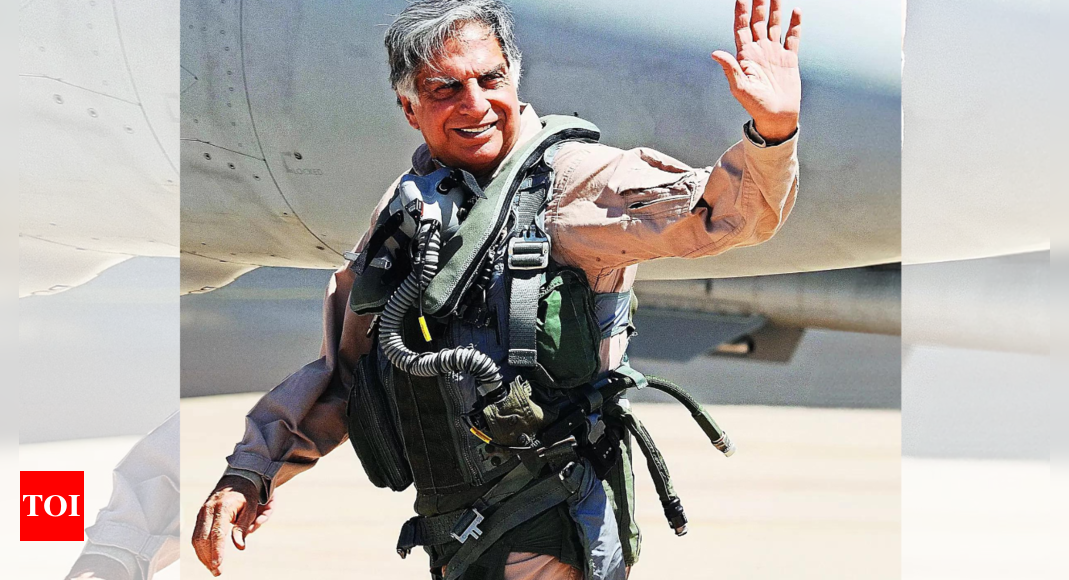Ratan Tata lived his life as a living legacy. He will continue to be alive in our collective memories as a legacy, even though his body has passed on. Om Shanti for a noble soul.
When one has worked with an icon for several years, one’s mind is flooded with vivid memories of deep interactions, some formal and some personal. The formal interactions gain currency within the company and find expression through corporate channels, even if with a bit of exaggeration here and there.Personal memories, on the other hand, stay etched into individual minds. Some memories from my mind appear in this tribute.
Much as Ratan Tata avoided the limelight, he got drawn into it. When I first met him in the 1990s, he was unbelievably shy, whereas the norm was that many business leaders displayed striking social presence and gravitas. If one walked into a room of business leaders in a hotel, it was sometimes difficult to identify where Ratan Tata stood in the crowd. Ratan Tata’s great virtue was that he made an impact without trying to be personally impactful. That was the subtle display of his inherent humility. However, for sure, his presence and savoir faire made their impact.
By the early 2000s, in any crowd, everyone noticed Ratan Tata immediately. My lesson is that men who don’t seek the limelight get the floodlight despite not trying.
On one occasion, a colleague and I were with him in the company jet, flying from Mumbai to Delhi. The airport staff at Mumbai airport had some grievances with their bosses and they stopped clearing flight take offs. All the blandishment of the pilot and flying team failed. Finally, Ratan Tata disembarked and ever-so-politely sought special dispensation to take off to attend a critical Delhi meeting. This plea was rejected. Reluctantly, we deplaned and went back. The subsequent letter of complaint to the airport authority written by Ratan Tata was an elegant testimony to his grace and sense of propriety. For sure, the message was firm, clear, and extremely effective. His exemplary behavior taught the lesson that human decency pays, and that you need not be rude or aggressive to make your point. At all times, Ratan Tata displayed Inaayat, Insaaniyat, and Ibaadat!
I happened to accompany him to an ACMA meeting-Association of Component Manufacturers-in Pune. He outlined his idea of using scooter parts and the infrastructure of the scooter component industry to make an indigenous passenger vehicle. The idea was received politely but with little enthusiasm. He then set out to prepare for what emerged after a few years as the Nano, the first Indian car designed and developed from ground-up. The launch price was Rs 1 lakh. What? How could a car be priced so ridiculously low? Reflect on his answer: once, in an interview with the Financial Times, he had tentatively mentioned a price idea of $2000 per car (Rs 50 to the dollar at that time). “A promise is a promise,” he argued. Indeed, Nano was launched at Rs 1 lakh!
I recall another example of Ratan Tata’s extraordinary qualities. It was the day after the Taj terror attack on 26th November 2008. I had prefixed a meeting with him at 10.30 am on 27th November. The previous night had been brutal for him and many of the Tata people. I had half a mind to skip that meeting. Years of discipline made me mark my attendance at Bombay House. Lo and behold, he was ready for me at his office. Of course, we dispersed after a coffee but “Why did you come”, I asked. “We had agreed, so I felt that I should turn up”, he responded. It reflected his commitment to a promise, of doing what was agreed upon, irrespective of changed circumstances.
This tribute has been written with personal memories. Although the fact is of little consequence, I feel compelled to note that, in contrast to his four predecessors, who helmed the Tata group from 1868 till 1992, and all of whom died abroad, he breathed his last in Aamchi Mumbai. However, my tribute should touch upon his greatest contribution in the public domain.
Ratan Tata did for Tata what Sardar Vallabhbhai Patel did for India in 1947. He held Tata together in the 1990s when the group was under centrifugal stress. His patient manner, his Buddhist approach of keeping ‘a beginner’s mind’, his listening skills were all live lessons in how to manage controversy and opposing viewpoints with calmness. For his effort to unite and keep Tata as one whole, to infuse Tata-ness back as a force of energy, and for his ability to motivate lakhs of employees to strive to be the best in the world, Ratan Tata will be remembered as a true Ratan of Bharat.
(The writer is former executive director, Tata Sons & before that vice-chairman, Hindustan Lever)
Share this content:
